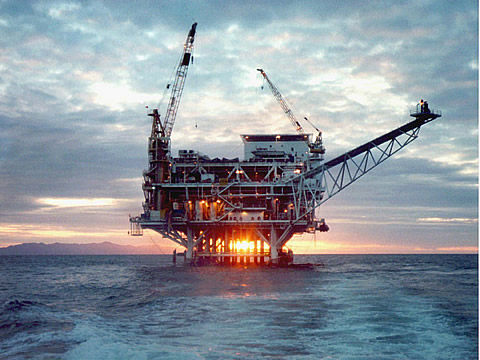Debt, North Sea oil and the pound sterling are just some of the economic issues pitting Edinburgh against London ahead of Scotland’s independence referendum in one month’s time.
First Minister Alex Salmond, the nationalist leader, insists Scotland must receive a favourable share of common goods in the event of a divorce, providing a base for the country to build a prosperous future on its own terms.
But the leaders of Britain’s three main parties — the Conservatives, Labour and the Liberal Democrats — have all warned that an independent Scotland would face economic hardship.
They have promised fresh powers for Scots if they vote to stay in the 307-year-long union.
The economy of an independent Scotland — similar size to that of Finland, Greece or Ireland — would be large enough to survive on its own.
However, the links with the rest of the United Kingdom are so strong that any breakaway is bound to involve some pain as the parliaments in London and Edinburgh thrash out the terms.
“There could be a long period of negotiations between the governments of Westminster and Holyrood on important issues, such as the sharing of public debt, regulation of Scottish banks and the currency question,” said Jack Allen, from research company Capital Economics.
Given that, on the nationalists’ timetable, Scotland would not become fully independent until March 24, 2016, a Yes vote would set the stage for a lengthy battle, with a fierce row over a future currency having already raged for many months.
Salmond and his Scottish National Party (SNP) want a monetary union between Scotland and what would remain of the United Kingdom (England, Wales and Northern Ireland), under the supervision of the Bank of England (BoE) in a role similar to that of the European Central Bank in the eurozone.
But this plan has been categorically rejected by Westminster’s three main parties and by Alistair Darling, Britain’s former Labour finance minister who now heads the Better Together campaign to keep Scotland in the UK.
This seemingly technical issue dominated the first televised debate between Salmond and Darling, who repeatedly accused his pro-independence rival of having no “plan B” if his currency union plan was indeed rejected by London.
The currency conundrum has also poisoned the debate on what happens to Britain’s sovereign debt — which is guaranteed by London — in the event of a break-up.
The remainder of the UK would demand that Scotland takes on its share upon independence, but nationalists have threatened not to do so if London rejects a currency union, particularly if the oil windfalls are less generous than hoped for.
“Around 85 percent of North Sea oil and gas is in Scottish territory,” said Nick Bate, an economist at Bank of America Merrill Lynch.
Making up around 15 percent of the economy, hydrocarbons would be an independent Scotland’s main economic driver, along with financial services.
It is therefore a crucial issue and, unsurprisingly, is hotly disputed.
Edinburgh has produced several possible scenarios of future oil tax revenues, with the most optimistic predicting an income of £38.7 billion ($64.6 billion, 48 billion euros) over the next five fiscal years.
Britain’s forecast is lower, at £17.6 billion.
Another study commissioned recently by the British government warned that one in every 10 Scottish jobs was reliant on trade with the rest of the UK.
These would be “endangered” in the case of independence, according to the leader of the Liberal Democrats in Scotland.
But for Salmond’s government in Edinburgh, “the main threat to the Scottish economy lies in the referendum on Britain’s membership of the European Union, which could take Scotland out of a single market of more than half a billion people.”
British Prime Minister David Cameron, encouraged by eurosceptics in his Conservative Party, has promised such a vote in 2017 should his party win next year’s general election.
Salmond has strong hopes that an independent Scotland would join the EU, but this would result in a lengthy application process, and even more uncertainty.

COMMENTS
Please let us know if you're having issues with commenting.